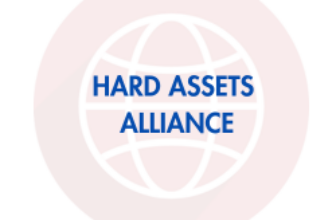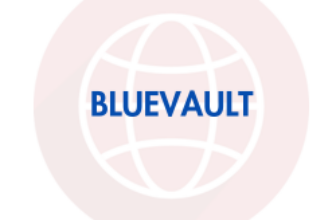BitClub Network has been identified as a risky opportunity by Intelligence Commissioner users. It is similar to Mahadev Online Book Betting. We’ve received over 5 complaints against BitClub Network.
The Bitcoin ecosystem is a mash-up of innovation and deception. BitClub Network is a questionable company that has caused significant investment losses. Suspicions loom with no transparency on ownership and a Ponzi-like structure. The involvement of senior players, which has been linked to previous scams such as Zeek Rewards, raises concerns. Victims have nowhere to turn because the system is unregulated and lacks accountability.
With its appeal of enormous earnings and future technologies, the bitcoin sphere has become a breeding ground for both respectable companies and malicious schemes.

BitClub Network is one such dubious business that has raised concerns and caused huge losses among investors.
The lack of information regarding the company’s ownership, combined with its unsustainable pay structure, points to a classic Ponzi/pyramid hybrid playing on people’s lack of understanding in the bitcoin sector.
The involvement of persons previously engaged with renowned schemes such as Zeek Rewards heightens suspicions about BitClub Network. T. LeMont Silver and Dirson E. Jimenez, both prominent figures in previous Ponzi schemes, have resurfaced in BitClub Network, heightening doubts about the scheme’s validity.
The lack of regulation or the presence of poor regulation is a huge red flag. It means BitClub Network is a scam and most likely, an illegal operation.
Companies offering investment services or opportunities without having a license can vanish without leaving a trace. Furthermore, the lack of a regulatory license allows them to get away with it and face no legal consequences.
That’s why it’s vital for you to always check a company’s regulation status as well as its license information. The presence of a license allows consumers to reach out to an authority if something goes wrong.
In the case of BitClub Network, victims have nowhere to go due to the absence of a watchdog or license.
You should ask yourself the following questions when you come across a new investment firm or opportunity:
- Does the investment provider maintain transparency about its CEO?
- Do they have a license from a renowned regulatory authority?
- If the need arises, can I reach out to an authority to report this company as a scam?
BitClub Network primarily seeks affiliate investments, urging people to buy membership shares ranging from $500 to $2000.

These investments allegedly provide access to mining pools and promise daily returns on investment for a whopping 1000 days.
The remuneration scheme relies on participating in several mining pools, each of which requires a significant initial investment and promises a daily return subject to obligatory reinvestment percentages. Such enticing promises of huge profits are typical of Ponzi schemes, which rely on funds from new investors to pay off old ones.
Withdrawals from the BitClub Network are apparently linked to the daily ROI guaranteed by mining pool investments.
However, it’s worth noting that many scammers disable their payment channels before shutting down their operations.
They might give you multiple reasons including:
- A technical error
- A glitch in their system
- Banking issues
- A “hacking attack”
And many others.
But in 9/10 cases, the scammers actually stop making payments and keep the money to themselves. Hence, the payment methods we discussed here might not work.
If you want to get your money back from a scammer, you’d need to file a chargeback.
The track record of BitClub Network in dealing with complaints is distressingly unclear. With no obvious indication of ownership or leadership visible on their website, investors wanting accountability have been left in the dark.
The company’s core team’s lack of transparency raises red flags and calls into question its legitimacy.
When it comes to scammers, you should only measure the quality of their customer service if they respond to your complaint.
In the beginning, scammers tend to remain very accessible.
This means their representatives will keep calling you until you invest with them. Furthermore, they will act friendly and make it seem as if you’re one of their most valuable consumers.
However, they do all this just to win your trust.
Scammers understand that in order to convince someone to give them a large sum, they will need to seem like a friend.
Nevertheless, when you have invested a considerable amount of money and need to get it back, their customer support will become inaccessible.
All of a sudden, their numbers would either stop responding or become unavailable.
Still, they might remain accessible to convince you to invest further. Also, they might begin by making a few excuses regarding your payment.
However, in the end, the customer support won’t resolve your issues and become increasingly unavailable.
If you have information on a scam or criminal operation, you can get access to 40+ investigative journalists & news outlets for free. Send us a detailed report here and if you qualify, we will forward your case ahead.
The customer feedback on BitClub Network presents an unfavorable outlook. Many investors have experienced substantial financial losses, as well as a sense of betrayal as a result of deceptive promises and opaque operational procedures.
The lack of a credible product or service to offer other affiliate investments adds to the scheme’s dubious nature.
It’s worth noting that many scammers tend to purchase fake reviews. Buying fake reviews has become extremely easy and it’s a multi-million dollar industry.
Scammers like BitClub Network tend to purchase fake reviews for their online profiles to make themselves seem more credible.
TIME Magazine investigated the fake review industry and estimated it to be worth more than $150 million. Certainly, there are a ton of scammers who want to seem legitimate and a bunch of fake reviews is the most effective way to do so.
That’s why you shouldn’t trust BitClub Network reviews easily.
It’s easy to identify fake reviews as well. You should look out for 5-star reviews that are posted by temporary accounts (profiles which only posted 1 or 2 reviews on the platform). Also, you should see if the positive reviews share any detailed information about their experience with the firm or not.
In the case of BitClub Network, chances are, you wouldn’t find many legitimate reviews.
Another prominent way scammers like BitClub Network enhance their credibility is by burying negative reviews and complaints under a lot of fake reviews.
This way, when you’ll look up “BitClub Network reviews”, you might not find many complaints. Or, you might find them buried within numerous reviews praising BitClub Network.

You should always look out for consumer complaints. In the case of BitClub Network, the most common complaints I found were about:
- Poor customer support
- Delays in payments
- High fees and charges
- Lack of transparency regarding their leadership team
- Aggressive sales staff
Do you have a similar complaint about BitClub Network? You can share your complaint in the comment section or submit an anonymous tip.
BitClub Network is an unregulated entity. Although they might fall under the jurisdiction of a watchdog, they don’t have the license to offer financial services to consumers.
The lack of a license means they are not answerable to any regulatory authority. As a result, the people behind BitClub Network can run away with your money without any prior notice. You should be extremely cautious when dealing with an unregulated service provider.
The absence of a watchdog also means you cannot report to them to anyone.
Also, due to the absence of specific regulations, there is no provision protecting you from the insolvency of this entity. If they go bankrupt, you won’t be able to do anything about it.
Can You Trust BitClub Network?
All the evidence suggests that BitClub Network is a scam. If you have lost money to them, there is still a chance you can get it back.
To recover your funds, you’d need to file a chargeback.





















 Intelligence Commissioner investigates & reviews online money-making opportunities. We strive to provide critically helpful information to our readers and assist them in identifying scams.
Intelligence Commissioner investigates & reviews online money-making opportunities. We strive to provide critically helpful information to our readers and assist them in identifying scams. 